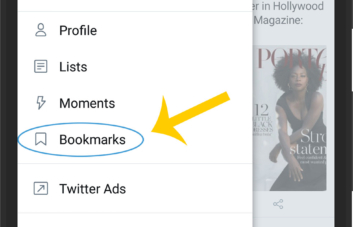J. Phil is a guest author who maintains the blog scribkin – where code and culture converge.
 Have you heard of Spokeo? Most likely it has heard of you. More specifically, it knows about any occurrence of your email address or other identifying information (like your Myspace profile name) in pretty much any public forum. At its core, it is a RSS information aggregator, which means it digests pretty much anything public and stores it all in a database, ready to be retrieved as needed.
Have you heard of Spokeo? Most likely it has heard of you. More specifically, it knows about any occurrence of your email address or other identifying information (like your Myspace profile name) in pretty much any public forum. At its core, it is a RSS information aggregator, which means it digests pretty much anything public and stores it all in a database, ready to be retrieved as needed.
Spokeo has been around for a few years now. Wikipedia says they were founded in 1996, and there have been plenty of articles written about the service. In fact, Spokeo itself maintains a page of citations. You can find more links at the end of this article, however I will save you some time by giving you a summary: Spokeo is cool because it lets you discover new information about other people online, but it’s scary because it lets you discover lots of information about other people online. A cuddly porcupine, indeed.
Like a porcupine, just deciding to use the service is a prickly issue. This year, several blogs have reported that Spokeo sends out unsolicited email to addresses that are submitted to their database (just search for spokeo spam in Google to find more). I can easily believe this to be true, even though I don’t see anything in the official Spokeo blog about it. The controversy is this: People who use the Spokeo service to find more information about their friends or email contacts unwittingly cause Spokeo to send a scary notification to those very people. People who are minding their own business suddenly get a notification like this one. If you look at the notification email carefully, you will notice that it does not say who caused the email to be generated, just that it was generated.
The sword (or quill, perhaps) cuts both ways here:
- People receiving the email get alarmed because the email at first blush looks like a “stalker warning” of sorts. Warning! Someone is looking up your entire life online!
- People looking up their friends, once they learn about the email freak out, because if they added their entire circle of friends to Spokeo, it’s becomes rather easy to figure out who did it. Eek, now everyone will think I am stalking them, or pointed the NSA’s black box directly at their email address!
On both counts, I say, relax. You can make a decision about using the service or not using the service based on this information, but the fact of the matter is, Spokeo is still collecting public online information, whether your friends are asking for it or not. Here is what you should take away from this: You may have put stuff on the internet in the past that you may not want there any more. From this perspective, Spokeo is actually helping you. If you are using the service to look up someone else or even yourself, you will see what it knows about you. If you get an email, it is inviting you to share what it knows about you TO you, and remove that information from its database if necessary.
Now, where I can point the finger at Spokeo is in two places. First, it never mentions to people using the service that a notice will be sent out to those email addresses that are submitted. It comes as a rude shock. And they might argue that the email does not point the finger back at you, but it doesn’t hold up; because of the aforementioned ‘circle of friends’ argument above, and the fact that they want you to log in to their service to fix it. This is the biggie — they seem to be cynically using their ‘helpful’ notification email to get you to log in, see what is there about yourself, and.. oh! Hmm, what if I put in my ex-boyfriend’s email.. or my boss’s email.. See? Spokeo should have some sort of email-based opt-out if the send an unsolicited email in the first place. Their argument that they are only trying to raise awareness does not hold much water here.
![]() Let me wrap up by saying a few things that are fairly positive about the service. They just had a big visual makeover and their new theme is very easy on the eyes. Also, their interface has user-customizable keyboard accelerators to allow you to navigate through the recent friends’ updates quickly and easily. Just having accelerators at all is a biggie for me.. that’s why I am hooked on Google Reader (but Bloglines has them as well).
Let me wrap up by saying a few things that are fairly positive about the service. They just had a big visual makeover and their new theme is very easy on the eyes. Also, their interface has user-customizable keyboard accelerators to allow you to navigate through the recent friends’ updates quickly and easily. Just having accelerators at all is a biggie for me.. that’s why I am hooked on Google Reader (but Bloglines has them as well).
Finally, you do actually find out new stuff about people you add. Most people forget that they signed up for Friendster in 1999 or Multiply in 2001. And if you are on Myspace, forget about it.. Spokeo knows everything about you. I found some pictures of an ex-boss that I’m sure he would be embarrassed to know are still on the ‘net. You might want to think about that for a minute and see if there any old accounts you need to shut down.
- Spokeo, A Social Network Aggregator – ZDNet
- Spokeo Launches Social Network Aggregator Tonight – Mashable.com
- The Internet Site Spokeo: I Know What You Did Last Summer (and Last Night) – Associated Content
- Spokeo – The Big Brother of social networking – Pandia Search Engine News
- Identifight Tells You What Sites Your Email Address Is Publicly Linked To – The Consumerist



